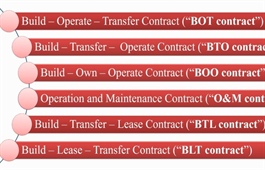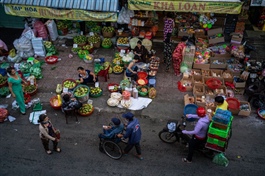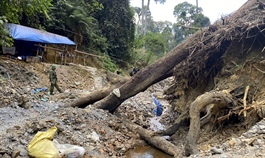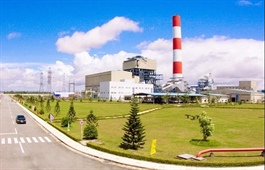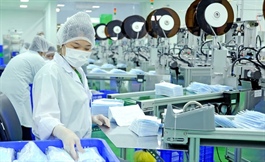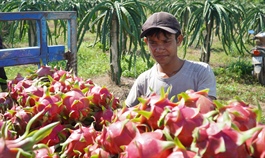Samsung seeks direct energy route
Samsung seeks direct energy route
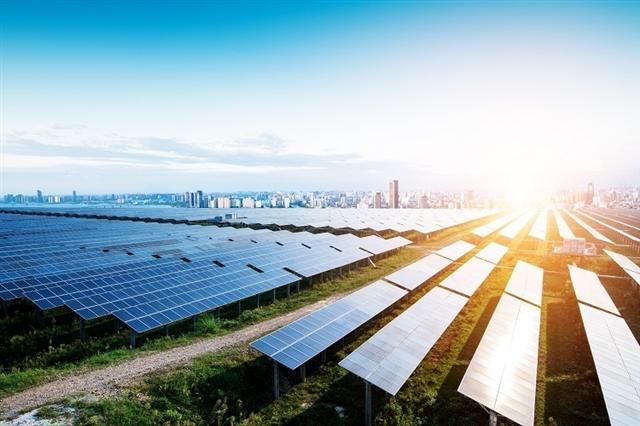
Samsung seeks direct energy route
|
According to information released by the Ministry of Industry and Trade (MoIT), Samsung Electronics leaders held a meeting with Minister of Industry and Trade Nguyen Hong Dien last week. The MoIT is collecting feedback for a draft circular on pilot implementation of direct power purchase agreements (DPPA) between renewable energy farms and end-users, in line with the government’s request to review the Power Development Plan VIII (PDP8).
Samsung Electronics, which boasts four major subsidiaries in Vietnam, confirmed with VIR that it has proposed the MoIT to participate in the DPPA model, but did not disclose further details.
In 2020, Samsung Vietnam earned $67 billion in revenue, accounting for 25 per cent of the country’s GDP of $268.4 billion. Samsung Electronics’ Thai Nguyen arm contributed the largest sum among the four subsidiaries, at $26 billion.
Looking at the MoIT’s draft model, Samsung Electronics fulfils most of the criteria for electricity consumers to join the DPPA pilot project. Accordingly, consumers purchasing electricity for industrial production at a voltage level of 22kv or higher can directly negotiate and purchase electricity from renewable energy farms under a fixed-term contract. Power purchase transactions will be made through the spot market in compliance with the regulations on competitive electricity market operation issued by the MoIT.
Samsung Electronics’ proposal could set a precedent for multinational corporations in Vietnam to join the DPPA programme.
“Samsung Electronics wants to buy electricity directly. This is one of the three study directions that we want to deploy in 2021,” said Vu Nguyen, head of sales at Shire Oak International.
Shire Oak, a wholly-owned British company, is working through the United Kingdom Embassy and a number of organisations to promote the sale of electricity from rooftop owners via Electricity of Vietnam (EVN). Shire Oak is also considering investment of transmission line links.
“Factories in industrial zones have high power consumption. However, the current legal framework has yet to allow the direct sale of rooftop solar power to factories. With mounting pressure from the community, we hope to be able to do this next year,” Nguyen added.
Shire Oak cancelled a project to develop solar power in combination with agriculture in 2019, when the rooftop solar power mechanism was first established. “We still hope there is a way to make the project financially and legally viable,” he added.
Revenues would have come from both agriculture and rooftop solar power. Such a project might still have been feasible in 2020, but is no longer so as the new feed-in tariff for rooftop solar energy is reduced by 30 per cent.
Samsung Electronics’ proposal immediately attracted the attention of analysts and the business community given that the government may approve the PDP8 this month.
Nguy Thi Khanh, director of GreenID, an organisation promoting of sustainable development in Vietnam, said that the national energy development policy should support the participation of domestic enterprises rather than foreign-invested enterprises (FIEs), which already enjoy several benefits.
Nguyen Tien Lap, a senior partner at NHQuang & Associates, also warned, “Samsung Electronics’ proposal needs to be evaluated very carefully. Global corporations like Samsung do not make random proposals. Indeed, this is a strategic proposal and it will change investment policy sooner or later.”
Lap added that Vietnam’s energy security is facing problems including the government’s power planning, EVN’s power grid and dispatching issues, and project investment as a business right. However, the PDP is developed from the perspective of the MoIT. Thus, if being applied as a general legal basis, it will turn into a hindrance to the investment climate. Therefore, the implementation of the PDP may need to be changed.
“Samsung Electronics’ proposal is to be exempt from carbon taxation,” commented Pham Xuan Hoe, former deputy director of the Banking Strategy Institute at the State Bank of Vietnam.
Up to now, Vietnam has yet to implement carbon pricing although both the Law on Environmental Protection and a draft decree regulating greenhouse gas emission reduction and ozone layer protection require the Ministry of Finance to revise the regulation on carbon pricing.
|
PDP8 to be tabled for government approval The Ministry of Industry and Trade (MoIT) was asked to review, add more contents, and consult ministries and sectors to complete and submit the draft Power Development Plan VIII (PDP8) to the prime minister before June 15. The government requested the MoIT to complete the draft PDP8 on the basis of assessment of the current capacity of the national power system. According to the conclusion of Deputy Prime Minister Le Van Thanh, the PDP8 must ensure the sustainable development of the electricity industry and improve the nation’s power autonomy. It needs to determine the scale of reasonable development of the national electricity system over time to have the most reasonable electricity selling price and improving the competitiveness of the economy. According to the draft PDP8, Vietnam will need a huge amount of capital, about $12.8 billion per year until 2045, for the scenario of increasing the capacity of the power system to over 102,000MW by 2025, over 137,000MW by 2030, and 276,600MW in 2045. The MoIT will have to closely review and evaluate the current state of the national power system and maximum power supply capacity as well as other financial calculations. The draft PDP8 for the 2021-2030 period with a vision towards 2045 was submitted to the government at the end of March. |







